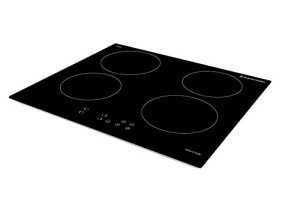Why Induction Hob Guide May Be More Dangerous Than You Believed
Induction Hob Guide: A Comprehensive Overview
Induction hobs have actually become a popular option for modern kitchen areas, reinventing the method individuals cook. This guide will provide an extensive take a look at what induction hobs are, how they work, their advantages and drawbacks, and factors to consider when buying one.
What is an Induction Hob?
An induction hob is a type of cooktop that utilizes electro-magnetic energy to heat pots and pans directly, rather than cooking through a flame or by warming the surface of the cooktop. This innovation is becoming significantly popular within both domestic and industrial kitchen areas due to its efficiency and security features.
How Does an Induction Hob Work?
The concept behind induction cooking counts on electro-magnetic induction. Here's how it works:
Electromagnetic Field: When the induction hob is changed on, it creates an electromagnetic field beneath the cooktop surface.
Product Response: If a ferrous (magnetic) product pot or pan is placed on the hob, the magnetic field causes currents in the pots and pans.
Heat Generation: These caused currents produce heat directly in the pot or pan, preparing the food inside. The hob surface stays cool to the touch since it is not being warmed straight.
Advantages of Using an Induction Hob
Induction hobs come with a wide variety of benefits:
Energy Efficiency: Induction cooking is highly efficient as nearly all the energy produced is transferred straight to the pot or pan, resulting in quicker cooking times.
Safety: The surface area of the induction hob stays cooler, reducing the danger of burns. Additionally, induction hobs shut off instantly when pots and pans is removed.
Precise Temperature Control: Users can quickly adjust the heat settings, providing much better control over cooking temperature levels.
Easy to Clean: Because the induction hob itself does not get excessively hot, spills are less most likely to burn onto the surface area, making cleaning a breeze.
Modern Aesthetics: Induction hobs generally are available in sleek, flat designs that fit well in modern kitchen areas, boosting the total visual.
Disadvantages of Induction Hobs
While there are various advantages, it is also important to consider some drawbacks:
Cost: Induction hobs are often more expensive than standard gas or electric cooktops.
Cookware Compatibility: Specialized cookware is required; only ferrous cookware will deal with induction hobs, indicating some pots and pans may require to be replaced.
Sound: Some users report a buzzing or humming noise when utilizing induction cooking, particularly at high settings.
Power Limitations: Induction hobs might need particular electrical setups and can not be utilized with basic outlets if they have high power requirements.
Key Features to Consider When Buying an Induction Hob
When thinking about buying an induction hob, it's important to evaluate a number of factors to guarantee you make the very best option for your cooking area.
Feature
Description
Size
Choose a model that fits your kitchen space and fulfills cooking needs (2-5 burners).
Power Output
Look for higher wattage for quicker heating but guarantee compatibility with your power supply.
Control Type
Decide in between touch controls or knobs, based on your choice for ease of use.
Security Features
Look for automated shut-off, child locks, and residual heat signs.
Style
Select a style that complements your kitchen area design— consider an integrated versus a countertop.
Warranty
Verify the warranty used— longer warranties recommend better item assurance.
FAQ
Can I utilize any pot or pan on an induction hob?
No, only pots and pans made of ferrous metals, such as cast iron or some stainless steel, will work on induction hobs. Aluminum, glass, and copper pots and pans are not compatible unless they have a magnetic base.
How does induction cooking impact cooking times?
Induction cooking is typically faster than gas or electrical cooking, as it directly heats the pots and pans and not the cooktop. Ovens And Hobs of users report substantial time cost savings when boiling water or cooking meals.
Is induction cooking safe for children?
Yes, induction hobs are considered safe for kids. The main surface area stays cool, and the hob immediately switches off when cookware is gotten rid of, decreasing the threat of burns or fire.
Do induction hobs need unique electrical setups?
Some induction hobs might require a dedicated electrical outlet in order to function properly, specifically those with higher power output. It is vital to speak with an electrician if you are not sure.
Induction hobs represent a substantial improvement in cooking innovation, delivering performance, speed, and security advantages over conventional cooking methods. While there are factors to consider to bear in mind, such as expense and pots and pans compatibility, the benefits can surpass the drawbacks for lots of users. As home cooking continues to develop, induction hobs are sure to be at the forefront of modern culinary technology.
Whether you are a cooking newbie or a skilled chef, understanding how induction hobs work and what to look for when acquiring one can considerably improve your cooking experience. By weighing the advantages against the disadvantages and considering your particular needs, you can make a notified decision that will raise your cooking to new heights.
